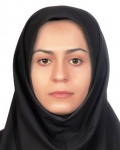| نویسندگان | مینا امین,الهه محمودی خالدی,سینا نرره ای,مهرداد زینلیان |
|---|
| نشریه | Iranian Journal of Medical Sciences (IJMS) |
|---|
| ضریب تاثیر (IF) | ثبت نشده |
|---|
| نوع مقاله | Full Paper |
|---|
| تاریخ انتشار | 2023-02-28 |
|---|
| رتبه نشریه | علمی - پژوهشی |
|---|
| نوع نشریه | الکترونیکی |
|---|
| کشور محل چاپ | ایران |
|---|
| نمایه نشریه | SCOPUS ,ISC ,PubMed |
|---|
چکیده مقاله
Squamous cell carcinoma (SCC) is the most common human
solid tumor and the leading cause of cancer death. SCC of
the breast is a very rare type of cancer that has not been well
researched. Early identification of the genetic factors involved
can lead to early diagnosis and targeted treatment. The present
study was conducted in 2018 at Isfahan University of Medical
Sciences (Isfahan, Iran). The proband was a 66-year-old woman
with SCC of the breast and a positive family history of cancer.
Blood DNA samples were used for whole-exome sequencing
to identify germline pathogenic variants. Variant annotation
and prioritization were done on variant call format files using
bioinformatics software tools. The screened variants were
confirmed using the Sanger sequencing method. Co-segregation
analysis was performed on the blood DNA samples of the
first- and second-degree relatives of the proband to assess the
presence of the mutation. A novel germline pathogenic variant
was identified in the RECQL4 gene of the family. RECQL4 is
a known protein in DNA repair and replication. Considering its
effect on other types of SCC, it may play an important role in
SCC initiation and progression in the breast.
